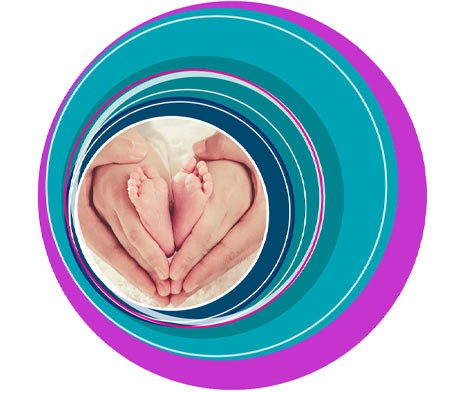
Who’s at risk?
Vitamin B12 deficiency can affect women, men and children of all ages, it can manifest at any given time of life. This wide-ranging condition does not discriminate – it can cause long-lasting nerve damage if you remain undiagnosed and untreated, inflicting a whole host of symptoms which can vary in severity.
If you suffer from any of the following conditions, you may have an underlying B12 deficiency and it is advised that you are tested. Please see the What to do next page.
Although B12 deficiency can affect anyone, certain people are at an elevated risk…
They are those diagnosed with…
- Dementia – Alzheimer’s disease
- Depression (post natal & psychosis)
- Bipolar disorder
- Peripheral Neuropathy (diabetic, CIDP)
- Vertigo
- Anaemia – any form
- Congestive heart failure (CHF)
- Autism, ADHD
- Cerebral palsy
- Seizures / Epilepsy
- AIDS dementia complex / HIV
- Restless leg syndrome
- Radiculopathy, chronic pain disorder
- Chronic fatigue syndrome (CFS)
- Fibromyalgia
- Chronic renal failure (haemodialysis patients)
- Essential tremor – Parkinson’s like symptoms
- Erectile dysfunction and impotence
- Hepatitis C
- SACD (subacute combined degeneration of spinal cord)
- Cervical Spondylosis
- Multiple sclerosis
- Cancer
- Optic neuritis or optic atrophy
- Macular degeneration
- Hyperhomocysteinemia
People…
- that are vegetarians, vegans and people on macrobiotic diets
- aged fifty and over
- who’ve undergone any gastric and/or intestinal surgery, including bariatric surgery for weight loss purposes (gastric bypass)
- who regularly use proton-pump inhibitors, H2 blockers, antacids, Metformin and related diabetes drugs, or other medication which can interfere with B12 absorption
- who have used nitrous oxide
- with a history of eating disorders (anorexia or bulimia)
- with a history of alcoholism
- with a family history of pernicious anaemia
- diagnosed with anaemia (including iron deficiency anaemia, sickle cell anaemia, and thalassemia)
- with Crohn’s disease, ulcerative colitis, irritable bowel syndrome, coeliac disease, or any other disease that causes malabsorption of nutrients
- with autoimmune disorders (especially thyroid disorders such as Hashimoto’s thyroiditis and Graves’ disease), type 1 diabetes, vitiligo, lupus, Addison’s disease, ulcerative colitis, rheumatoid arthritis, acquired agammaglobulinemia, or a family history of these disorders
- with neurologic or motor symptoms
- with Downs syndrome
- with Phenylketonuria (PKU)
- with psychiatric disorders, including depression, bipolar etc
- with elevated MCV (mean corpuscular volume)
- with occlusive vascular disorders (MI, CVA, DVT, PE)
- with orthostatic hypotension / postural hypotension
- who have had transient ischemic attacks (TIAs, or ‘mini stroke’)
- who have had a cerebral vascular accident (CVA or ‘stroke’)
- who have had a myocardial infraction (‘heart attack’)
- with DVT – Deep vein thrombosis (blood clot to the leg or arm)
- with Gastroesophageal reflux disease (GERD)
- who’ve undergone neck or back surgery
- who’ve undergone chemo or radiation therapy
Women…
- with a history or infertility or multiple miscarriages
- with post natal depression
- Nitrous oxide administration (laughing gas)
Infants…
- born to and/or breast-fed by women who are symptomatic or are at risk for B12 deficiency
- Infants and children with developmental delay
If I've helped please consider buying me a coffee/leaving a virtual tip.
Doing this helps me to offer this free website to you and others around the world.
Thank you, I really do appreciate it.
